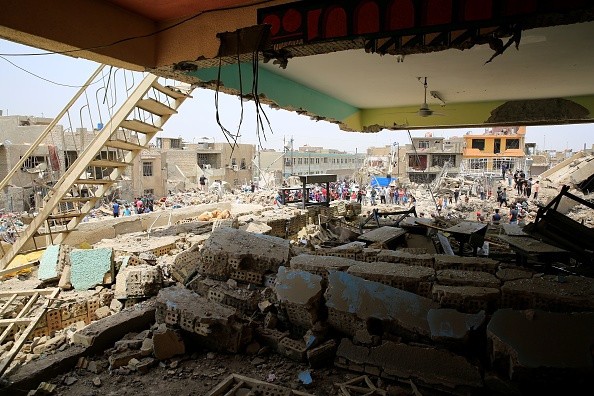As the Islamic State terrorist organization (ISIS) claimed yet another attack, the Iranian Foreign Ministry issued a warning about plans to destabilize Afghanistan.

ISIS-K Claimed Another Suicide Attack
In a recently published article in Newsweek, on Friday, ISIS-K claimed responsibility for a suicide attack at a Shiite Muslim mosque in Kandahar that killed more than 50 people. Anas al-Khorasani and Abu Ali al-Balochi were the attackers' names, likely monikers for the two ancient areas of Khorasan and Balochistan, including portions of Afghanistan, Iran, and Pakistan.
The action occurred a week after jihadists attacked another gathering of Shiite Muslims in the Afghan city of Kunduz, killing up to 100 people and wounding dozens more. ISIS-K later named the attacker Mohammed al-Uyghuri, indicating a link to Central Asia's Uyghur minority.
A Sunni Muslim mosque in Kabul had been attacked a week before, and as Afghanistan's now-ruling Taliban tries to bring order to the country, Iran, the world's top Shiite Muslim power, has issued a statement blaming takifiris, those who consider other forms of Islam to be apostates and will not tolerate their existence, according to a report published in Daily Advent.
Iranian Foreign Ministry Condemned the Attack
The ministry condemned the Takfiri terrorist assault on the Fatemieh Mosque in Kandahar, which killed and injured a significant number of worshipers. The ministry also expresses its condolences to the victims' families and the Afghan people and prays for patience and divine compensation for the bereaved families, as well as speedy recovery for those wounded in this cruel act.
The Foreign Ministry also warns of attempts by the enemies of the Islamic ummah to create divides, emphasizing the need for unity and solidarity among Shias and Sunnis, as well as the rejection of violence and extremism in the name of Islam, according to a report published in Washington Newsday.
In the aftermath of the unrest, Iranian authorities have advocated for strengthening the fortifications of sacred sites, which they think the Afghans would eventually overcome. Invoking the ummah, or worldwide family of Muslims, Tehran issued a warning as well.
Brief Background of ISIS
Unlike the Taliban and Al-Qaeda, which arose from the United States and Pakistan's support for mujahideen resistance to the Soviet Union in Afghanistan in the 1980s, ISIS arose from Al-Qaeda's Iraq affiliate in the aftermath of the US invasion toppled Saddam Hussein, the country's longtime leader.
Furthermore, the United States had invaded Afghanistan two years before to take on a Taliban-led government that had harbored Al-Qaeda in the aftermath of the 9/11 attacks, according to a published article in Fry Electronics.
On the other hand, the Taliban, mainly made up of Pashtuns, has promised to defend Afghans of all ethnic origins, including Tajiks, Hazaras, and Uzbeks. Hazaras are the only ones among the groups that follow the Shiite branch of Islam, which ISIS ultraconservatives see as apostasy in their strict Sunni Islam. Many Hazaras have also accused the Taliban of persecution, and many have migrated to neighboring Iran in recent decades.
© 2025 HNGN, All rights reserved. Do not reproduce without permission.








